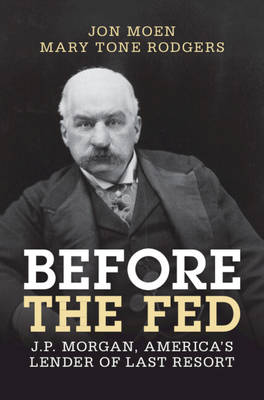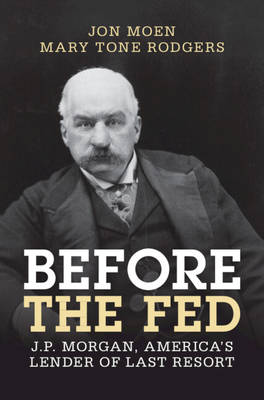
- Afhalen na 1 uur in een winkel met voorraad
- Gratis thuislevering in België vanaf € 30
- Ruim aanbod met 7 miljoen producten
- Afhalen na 1 uur in een winkel met voorraad
- Gratis thuislevering in België vanaf € 30
- Ruim aanbod met 7 miljoen producten
€ 194,95
+ 389 punten
Uitvoering
Omschrijving
In the 19th century the United States had no formal central bank or lender of last resort, but it did have J. P. Morgan. His unique knowledge of financial markets gave him almost omniscient knowledge for crafting solutions to financial crises. Before the Fed examines Morgan's unusual role in resolving the National Banking Era crises in the U. S., exploring the rocky relationships and ultimatums he used to settle financial panics. It traces how he learned crisis management lessons from his father, passing it along to his son in turn. Citing his own ledgers, telegrams and testimony, Jon Moen and Mary Tone Rodgers detail how Morgan applied and modified routine business practices to solve non-routine crises, managing risk and reward in emergency lending. Analyzing forty last resort loans made over his fifty-year career, the authors challenge the invincibility folklore surrounding Morgan, uncovering how he stabilized American markets when others could not.
Specificaties
Betrokkenen
- Auteur(s):
- Uitgeverij:
Inhoud
- Aantal bladzijden:
- 292
- Taal:
- Engels
- Reeks:
Eigenschappen
- Productcode (EAN):
- 9781009291545
- Verschijningsdatum:
- 30/10/2025
- Uitvoering:
- Hardcover
- Formaat:
- Genaaid
- Afmetingen:
- 152 mm x 229 mm
- Gewicht:
- 562 g

Alleen bij Standaard Boekhandel
+ 389 punten op je klantenkaart van Standaard Boekhandel
Beoordelingen
We publiceren alleen reviews die voldoen aan de voorwaarden voor reviews. Bekijk onze voorwaarden voor reviews.








